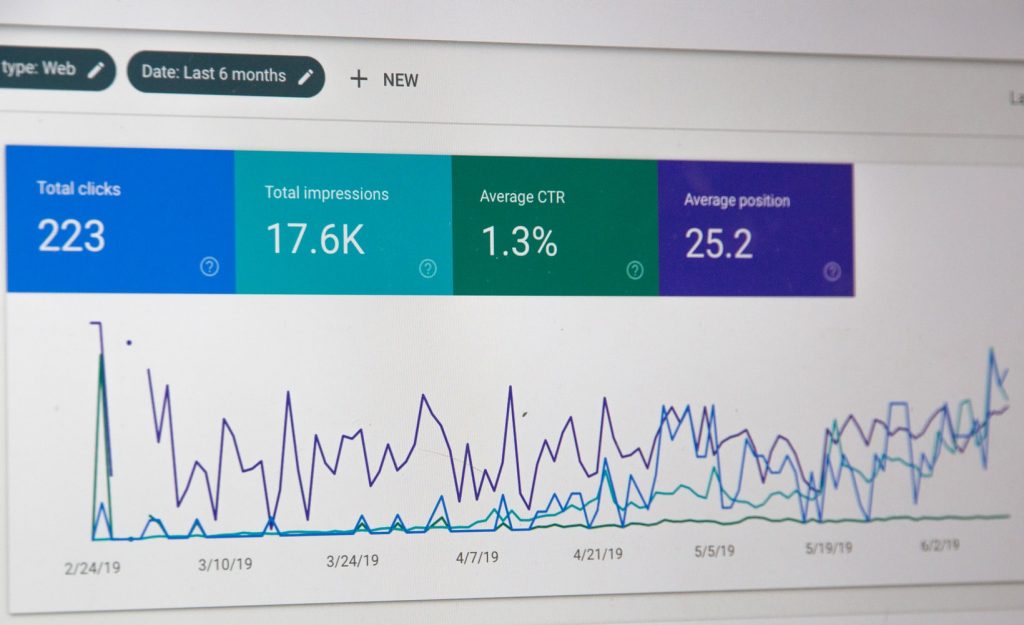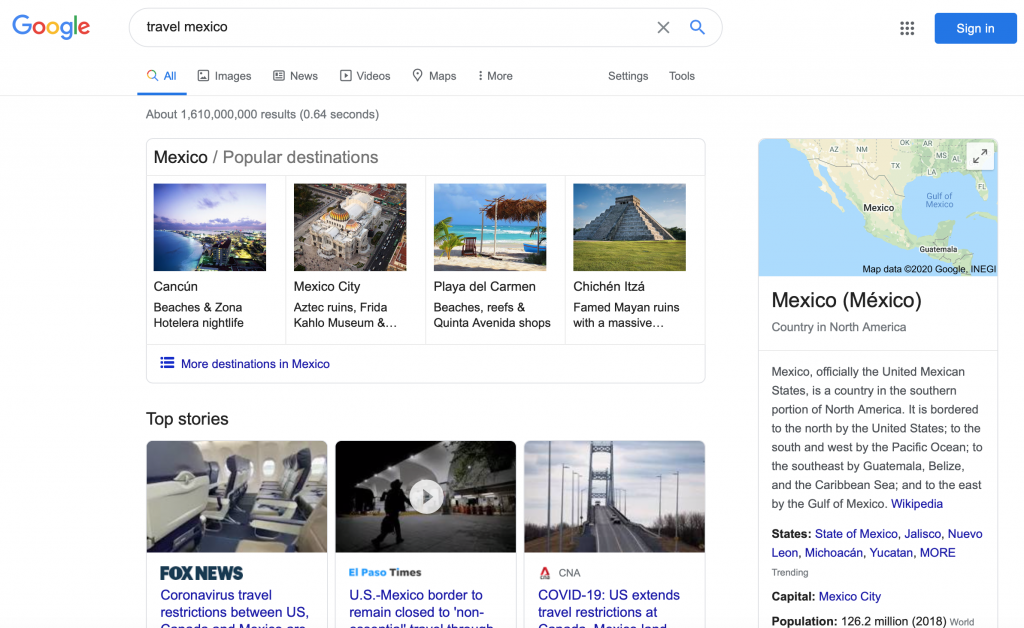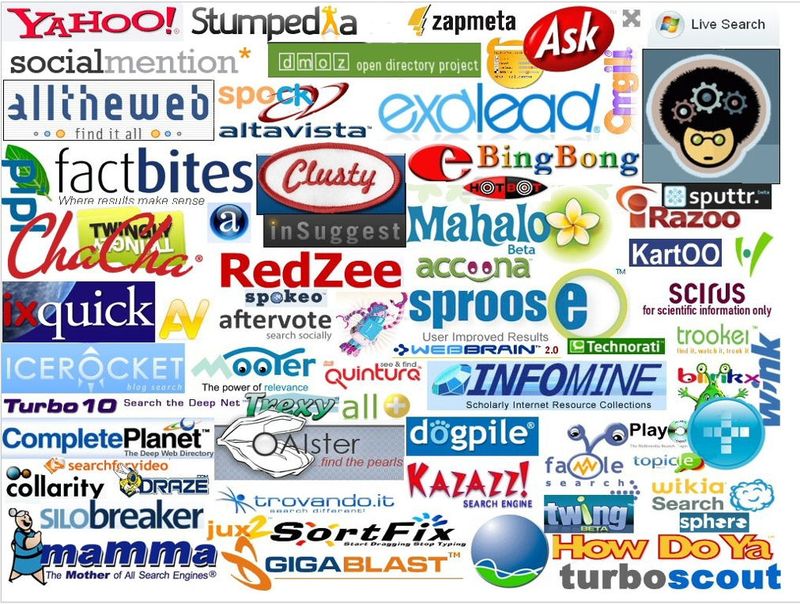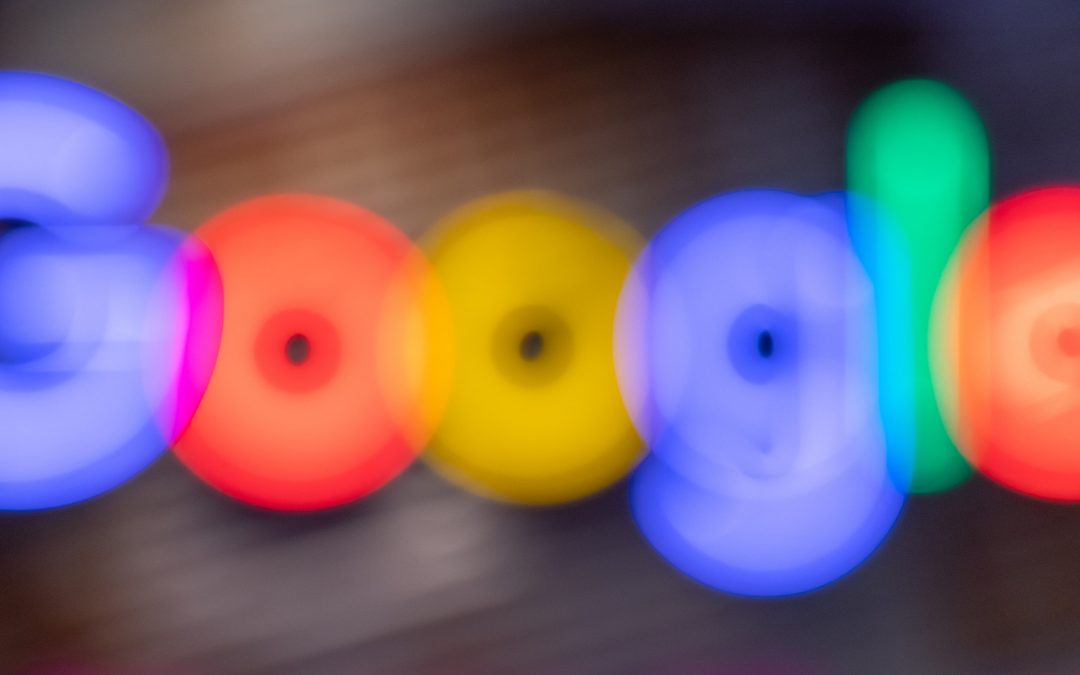The internet is under threat of being monopolized. In fact, many argue that it was already monopolized over the past 10-15 years. Since Facebook and Google have taken the stage, they’ve essentially programmed the web to be on giant monopoly that benefits them. And while greed hasn’t necessarily lead to the destruction of the web, it has certainly impeded and inhibited the growth of the web.
Before I go further, I should mention that I don’t want to be a downer. In fact, this article isn’t going to change the world, so if you prefer to be in positive spirits you might want to go read something else.
Ok, so you’ve decided to keep reading. I’ll get into the questions like “how it’s happening” and “what can we do about it” in a moment. The “why” is obvious. It’s about both money and control.
How Is The Internet Being Monoplized?
The internet has become damn competitive. But it goes beyond that. Moz wrote this article about how a monopoly is bad for us all. Anytime you’ve searched for anything online, there’s little doubt that more than a thousand internet marketers have already researched your exact keywords and tried to determine if they can monetize those keywords. And that’s especially true for any keywords that may involving money. For example, “fuel efficient car” as a keyword is likely to bring more advertising dollars than “flowers in central america”. Therefore, with that information, marketers know to focus their content more towards “fuel efficient car”, or other high-value keywords, in order to maximize their return.
But it goes further than that.
Google is center stage for anything web-related. It’s literally impossible to have success with anything online nowadays without getting Google involved. In order to track your website traffic, there’s Google Analytics. In order to optimize your website for “the web” (really, for Google) you must adhere to a number of strict SEO standards, submit your sitemap to Google, connect your website to Google Search Console, and do a number of other tasks.
Basically, you can’t “play the game” of trying to succeed online without Google being involved. This puts Google in a very powerful position, in perhaps countless ways.
Google Became The Internet

Google has become the internet. Before Google existed, the internet was a chaotic place, with thousands of little websites scattered all over the web. In many cases, it was only possible to find a website, if someone else linked to it, or if someone verbally told you the URL. Google was the great “organizer” of the web initially. They created a platform, a search engine, essentially a bunch of programming code that allowed people to search what was available in the deep abyss of the internet. The Google search engine was an excellent solution to the worlds problem.
But something shifted. Instead of saying “I searched the web for the information” we say “I Googled the information”.
Google became the new standard. It was as if Google was thought to be the internet. Although that’s false and the internet exists without Google, we all generally feel like we’d be lost online without Google. Still, it’s important for us all to remember that a Search Engine is only a tool, and tools can change.
How Google Dominated The Web
If someone wants to succeed “online”, they have to play by Google’s rules. People that search the internet in the western world use Google to perform their search, at least 80% of the time.
If everyone is using Google to search for information, anyone that wants to be found online, essentially must play by Google’s rules. And that’s not an option. If a website owner doesn’t follow Google’s rules, they’ll likely never be heard of. Their website or online business will be a ghost town.
Google’s rules are incredibly strict.
Personally, I’m not against a business having strict rules. Rules are necessary in all walks of life. The problem is, even if a website owner puts in all of the exhausting work to follow the rules, they’re still highly unlikely to succeed. Google has a lot of rules that a person must follow in order to achieve success on Google’s search engine. SEO is a big part of it. Website structure must be flawless, content must be long with proper use of HTML tags and backlinks must come from many other high-ranking websites. Now authority is a thing. Trust rank. Content intent. I could go on.
Google has about 5-10 installations that are necessary to ensure you’re complying with Google standards. And while having these tools are arguably beneficial for website owners, these tools give google the holy grail of information. They tell Google information about your visitors and users, what new trends are happening online, what content individuals are interested in. And even important metrics about your sales.

Let’s slow down. None of what I write is about Google’s intent on collecting information to use it in evil ways. In fact, I think Google does a decent job of not abusing website owners trust.
Getting back to competition, in all business there’s competition. However, the problem isn’t the competition among website owners. The problem is the competition…for Google.
Google “Manages” The Competition
In the online world, Google is the ringleader of the competitors. We’ve all put our trust in Google as the search engine of choice. And while that may be good or bad, Google has essentially taken that great responsibility and turned it into a non-escapable force. It’s a monopoly and people are starting to pay attention.
Website owners are under control of Google, as if we’ve all been hypnotized into thinking this is the only way. We install Google’s apps and plugins, because Google is #1. We have little choice in the matter. Even if us website owners offer a better product, a better article, or a better experience, we’ll never climb in the rankings because we’re pushed “below the fold”, meaning we’re on the second or third page in search results.
On Google’s first page, there’s only ten website listings. Those are essentially the 10 most important spots on the entire search engine for a website owner. Those “organic search results” are the bread and butter of any website owner that’s ever tried to compete online.
Those ten spots only display on Google’s search page…after ads, video suggestions, and other Google clutter. Have you seen travel search results lately?
Look at how much clutter Google puts before their actual search results now:

Stuff like this pisses-off us website owners. We can’t win. Even if we followed all of Google’s rules and made it onto the first page of Google’s search results, Google can just make one little change and all of a sudden our organic result listing disappears into the abyss.
Not only are we competing with other website owners, but we’re competing with Google themselves for space.
It’s a competition for eyes, clicks and views. When organic search results are pushed down the page, the little guys lose. Naturally, this is a losing proposition for website owners. We’re being pushed to the sidelines, or off the playing field altogether, while Google makes “more space” for other interests.
It’s hard to be a website owner. It’s no longer a profitable venture for small-timers. Even programmers, like myself, have a slim chance at being profitable. The fact that you’re reading anything on my website, means you found this website (and hint, I’m losing money by running this website).
The only one’s that see a profit are teams of programmers, with content writers, SEO experts, marketers, developers, designers etc. The companies that can afford those teams are usually those with big venture-capital budgets. And in those cases the profits are going into the pockets of those that are already flowing with cash.
What about the small innovators that want to run a business? Good luck.
Where Did These Monopolization Forces Come From?
Back in 2005, this was completely different. Google was still relatively young. We had a chance. A small chance, but still a chance. Google and Amazon were both more fair in their payouts to advertisers/affiliates. Google didn’t clog up the results pages with their clutter. Search engines were fair and not focussed on backlinks, which now greatly distorts results pages. Google hadn’t bought the nearly 200 companies that they now own. But more importantly, people were still exploring the web in different ways to find information, by using different search engines, different social media platforms, etc.
But that has changed.
There’s few “platforms” nowadays because it’s become so expensive to create a new platform. While billions of venture capital being dumped into companies, small-timers have no chance. A programmer that wants to be “innovative” can’t be innovate without venture capital or being employed by an already-existing tech giants. And that means innovation is being stifled. And from that, we all have less options and less tools to search in alternative ways.
Now, it’s nearly impossible to succeed outside of the invisible lines that Google, Facebook and Amazon have drawn.
And being forced to rely on only google, for disappearing space, means that Google essentially has an impact on who wins, who loses, prices, advertising bids and offers and even who is simply permitted to exist online.
But Who Competes With Google?

There were dozens of search engines back in the 1990’s and early 2000’s.
Now most of them are dead.
HotBot, Alta Vista, WebCrawler, Ask Jeeves, Lycos, Excite, and more. Slowly, they’ve all gone bankrupt, bought out, or fizzled into nothing. At this point, they’re like a signed Babe Ruth baseball that was placed on a fireplace mantel long ago, only to be dusted off during the holidays. But at least people remember Babe Ruth.
Competition is important in the information market. With competitors, there exists multiple venues for people to search, advertise, and share information.
Yahoo, Bing and DuckDuckGo are Google’s largest competitors. But they aren’t comparable in size. These are three Davids against an infinitely larger Goliath. Most people haven’t heard of DuckDuckGo. Bing only still exists because it’s owned by Microsoft. Yahoo is dying a slow and painful death. All three are hanging on by a thread, essentially dinosaurs that are seeing meteor showers crash down all around them.
The Network Effect Means Winner Takes All
In our local towns, we like to have options. We get tired of Italian, so we eat Chinese food. Or we want a bagel for breakfast instead of a muffin. Or chai instead of coffee. But this doesn’t work the same way with search engines (although, maybe it should).
Search engines aggregate data (website page listings) that website owners create and then format that data to be friendly to searchers. People prefer to take the path of least resistance to receiving information. Connecting the information, from the content creators (website owners) to the consumers (readers of the information), is what makes a search engine successful. They’re essentially the middleman.
This leads to what is called a Network Effect.
The network effect is the same thing that happens on Facebook. People use Facebook because other people are using Facebook. Without one side…the other side stops using it. It’s the same for Amazon, Uber, Netflix, and many other tech companies. Arguably, it’s the new definition of “success” in the technology world. Instead of making a product, a tech company just has to design a platform where other people can promote their products. Once buyers and sellers come together…success!
Harnessing the Network Effect is very difficult. But when achieved, it’s tremendously powerful. It puts tech companies in a position of influencing outcomes, influencing the consumption of the information itself, and gaining profits from fees, advertising, and other ways to earn money.
When Google achieved the Network effect, they quickly maximized their new power. They launched GMail, Maps, Blogger, Adwords, later Chrome and a number of other more recent impactful tools for web users. Their suite continues to grow. Please note, this itself didn’t imply a Google monopoly existed, it just illustrated that things were going in that direction.
Oddly, they went first circle. We should have seen it coming. Website content was what initially made Google even able to achieve the Network Effect. Now, they’re crushing those that produce website content…Google’s initial honey pot.
Can’t We Just Use An Alternative To Google?

It’s a lot like changing a currency. We all have money in our pockets. Would you accept a purple bill that wasn’t a United States dollar, in exchange for your product or labor? Probably not. And that’s exactly what it’s like to consider using a Google alternative. Sure, we can do it. But it’ll make it impossible for us to do business. And it’ll make it impossible for our customers to find us in order to do business with us.
Google is essentially the only option. And that goes for both sides. They’re the only option to compete on in order to get new website visitors, and Google is the only search engine that people consider to be good.
But maybe that should change.
DuckDuckGo is operational. Yahoo is still trying to compete with Google. Lycos appears to still be running (how, I don’t know). Bing is a dinosaur, but it’s still there. Firefox is still around and going strong, even after Chrome took a big part of the Browser market.
Maybe it’s time we start personally trying out new space and utilizing the tools that other technology companies offer.
A Lot Of Good, Despite Monopolizing Efforts
I hesitate to mention “good”. However, it would be unfair for me to ignore the vast amount of information tools and services that Google offers for free to it’s millions (billions?) of users. Google Translate is incredible. Gmail, although not particularly “incredible”, is certainly excellent technology. YouTube is great in many ways, except for their recent bouts of censorship.
Honestly, it’s a mixed bag.
This is why things get complicated. Google has helped advance technology in a number of ways, providing tools that otherwise may not be available. However, they’re getting themselves into murky waters. They’re getting themselves involved in too many areas, using questionable business tactics that prohibit growth and are preventing others from getting involved in “innovation”. I think that’s why they’ll possibly be facing Anti-Trust lawsuits in the United States soon. Google was sued in the UK in 2018 for anti-trust interactions, at the tune of $5 Billion. Google lost and had to pay. You can read about Google’s long history of lawsuits. And that’s not to mention Google’s involvement with the NSA’s PRISM Program.
Realistically, the new wave of lawsuits coming to Google is just the beginning. A lot of people feel that Google has been overstepping boundaries for a while.
Perhaps an Anti-Trust lawsuit is necessary. Google has been dancing the line too long of being one of “the good guys”. Now they’re annoying a lot of people and overstepping boundaries in a lot of uncomfortable ways.
Do you think that the web is being monopolized? And if so, what can be done to overcome this issue?



Look what the monopoly ‘home jippo&lowes’ are doing. As with any monopoly, they can and will inflate prices. AND can and will flood the market with literally JUNK!
I’ve just noticed from a search for a product, all of the sudden there are several sites that pop up as directors. They don’t sell anything.
It’s becoming a sad planet where the 1% control every aspect of everything while killing the planet in the process. All in the name of profit.
Corporatizm Is the end game. Keep sucking it up dependent sheep.